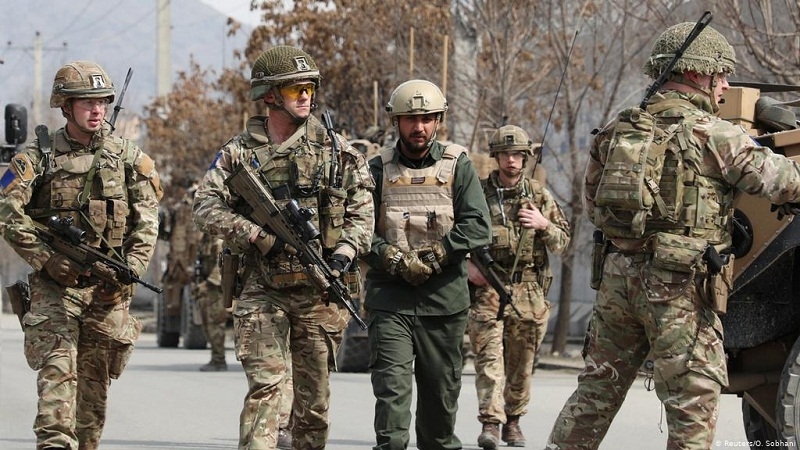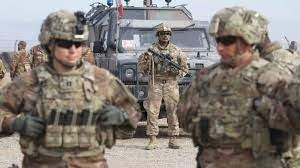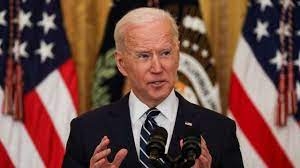American Withdrawal from Afghanistan and India

American President Joe Biden has announced his decision to withdraw all US Troops from Afghanistan by 11th September 2021; 20 years to the day, after Al Qaeda terrorist attacked United States that triggered the conflict. Withdrawal of 2,500 remaining US Troops in Afghanistan will start on 01 May, 21.
As on date, US does not have the staying power to prosecute long wars, resulting deaths of over 2500 American soldiers and escalating costs in excess of 1.2 Trillion Dollars anymore. It will not be a hasty rush to exit but would be done responsibly, deliberately and safely, in full coordination with American Allies and Partners. America will make sure that Afghanistan would not be used as a base from which to attack her homeland again.
Biden Administration has urged Pakistan, India, China, Russia, and Turkey, to play supportive roles in Afghanistan. This US withdrawal from Afghanistan was overdue as it is in line with her policy of “Use and Discard”. For her, Afghanistan has lost its strategic value. She has other big Strategic Interests in the world to look after. Afghanistan just does not rise to the level of those other threats at this point and will be discarded like Strategic Refuse. Inside Pentagon, emphasis today is on “Great Power Competition,” which is about future conflicts with China and/or Russia.
In 2001, Allies invoked Article 5 of Washington Treaty for the only time history of North Atlantic Treaty Organization (NATO) and went to Afghanistan together with clear objectives: to confront Al Qaeda and those who attacked the United States on 11 September 2001 and to prevent terrorists from using Afghanistan as a safe haven to attack Western World.
Withdrawal of NATO will also commence on 01 May 2021 when Thirty Nation “Resolute Support Mission” officially concludes/terminates on that day. This historical decision was taken during a meeting of US Secretary of State Antony Blinken with NATO Officials at its Headquarters in Brussels on 14 April 2021.
 There are 7,000 Troops from NATO Countries and Australia, New Zealand, and Georgia in Afghanistan. Antony Blinken also discussed Peace Process with Pakistan Army Chief; General Qamar Javed Bajwa on same day from Brussels.US thinks that a nod from Pakistan is essential for taking any decision on Afghanistan. This dependence refreshes an antidote when Pakistan ISI Chief General Hamid Gul has said; “When history is written, it will be stated that the ISI defeated Soviet Union in Afghanistan with the help of America. Then there will be another sentence, ISI with help of America, defeated America in Afghanistan.”
There are 7,000 Troops from NATO Countries and Australia, New Zealand, and Georgia in Afghanistan. Antony Blinken also discussed Peace Process with Pakistan Army Chief; General Qamar Javed Bajwa on same day from Brussels.US thinks that a nod from Pakistan is essential for taking any decision on Afghanistan. This dependence refreshes an antidote when Pakistan ISI Chief General Hamid Gul has said; “When history is written, it will be stated that the ISI defeated Soviet Union in Afghanistan with the help of America. Then there will be another sentence, ISI with help of America, defeated America in Afghanistan.”
This withdrawal will not be subject to further conditions, including Security or Human Rights as any Condition Based Approach. But US will neither allow Taliban to turn Afghanistan in a "Pariah State" nor allow Al Qaeda to take hold of the State a Taliban did in 1990s.
China/Russia on other hand feel that US/NATO withdrawal from Afghanistan by 11 September, 21 could lead to an escalation in decades-old conflict, thereby affecting efforts to start Direct Intra Afghan Negotiations commencing on 24 April 2021 in Doha, Qatar. Taliban has warned of dire consequences, if the agreement is breached and Foreign Forces fail to exit the country from/on specified date.
CIA/American Military Commanders have warned that their ability to collect and act on threats will diminish when time comes for US Military to withdraw from Afghanistan. They have further opined that, Taliban has been continuing its attacks on Afghan Security Forces/Civilians and has failed to totally cut ties with Al Qaeda and other Extremist Groups.
This withdrawal will provide these groups, a chance to regenerate the capabilities they would need to carry out an attack against US. In their opinion, Taliban will regain control of all or substantial portions of Afghanistan and if they do, Al Qaida and Others will return.
Biden Administration/US believes that concrete confirmation of a military withdrawal will forestall a harsh Taliban response targeting American personnel in Afghanistan. But most probably Taliban will take for granted American announcement as a declaration that America is leaving on its own terms, rejecting Agreement they had reached in 2020.
Taliban seems to have lost faith in America after Presidential Transition and thereafter utterances of US Officials and Diplomatic Engagement on Terms of Agreement. Taliban Leaders think that any unilateral American decision on withdrawal is a sign of duplicity and disrespect shown to their organization. But sane amongst them will be interested in negotiating about smoothing the way for withdrawal, especially in order to obtain the additional release of imprisoned fighters by Ghani Government and relief from UN Sanctions. Big question is whether Afghan Government would go along with such concessions in the wake of the withdrawal announcement as its consent would be required for release of interns.
 President Biden has pledged continued Non Military American support for Afghan Government and further clarified that though America will not involve herself in Afghanistan Militarily, her Diplomatic and Humanitarian Work will continue. America will provide all necessary support to Government of Afghanistan and their 300,000 strong Army and Police. Both, President Joe Biden and Afghan President Ashraf Ghani, pledged commitment to a Strong Bilateral Partnership after departure of US Combat Troops from Afghanistan.
President Biden has pledged continued Non Military American support for Afghan Government and further clarified that though America will not involve herself in Afghanistan Militarily, her Diplomatic and Humanitarian Work will continue. America will provide all necessary support to Government of Afghanistan and their 300,000 strong Army and Police. Both, President Joe Biden and Afghan President Ashraf Ghani, pledged commitment to a Strong Bilateral Partnership after departure of US Combat Troops from Afghanistan.
President Ghani has promised to work with US to ensure a smooth transition. America will provide “Over the Horizon Military Support” to include Strategic Advice, Intelligence sharing and Training to Afghan Forces only if Taliban allows smooth transition of power, and help fights fair and free elections thereafter. Announcement of American support will help President Ghani for establishing Battlefield Equilibrium with Taliban.
Taliban was created by Pakistani ISI on insistence of US to fight USSR invasion in 1978/79. After US invasion of Afghanistan in 2001/02, they moved to safe havens in Pakistan wherein, Taliban High Council operated from Quetta in Baluchistan. Taliban is very strong now with about 95,000 Fulltime Fighters and controls one fifth of country.
As on date, Taliban operates in all 34 provinces of Afghanistan. If they decide to advance, Afghan Government will have to struggle hard to hold Taliban at bay and may face setbacks on the battlefield as Taliban is confident of its military victory. It was Pakistan that persuaded Taliban to do a deal with the Trump Administration. For Pakistan, Afghanistan is guaranty of “Strategic Depth” in case of Indian Attack/Invasion. Total control of Afghanistan by Taliban will mean that her Friend is in power in Kabul after 20 years. India, which has had excellent relations with the Karzai and Ghani Governments, would be then cut to size.
American/NATO withdrawal and subsequent Battlefield Developments will shape Political Landscape in Afghanistan. President Ghani and Afghan Government are on shaky grounds and number of Powerful Stakeholders there and in Pakistan have openly advocated for an Interim Government, composed of various power brokers, to take its place.
Although Biden Administration has pledged to continue its support to present Afghan Government, potential Taliban Military Advances after American withdrawal could embolden these players to try to sideline President Ashraf Ghani. Turn of events after US withdrawal from Afghanistan will depend how closely Afghan Taliban adhere to their deal with US wherein it has promised to sever ties with Al Qaida and to prevent any Terror Group from using Afghanistan to launch attacks against West/India.
Future American Return Action against Taliban will be severely/badly affected in absence of Military Bases, Weaponry, Aircraft, and Network of Human Sources. Main challenge will be effective surveillance and potentially strike against extremist groups in Afghanistan. Therefore, America will likely place 30-40 Special Operations Forces under Embassy control to advise Afghan Forces, if need be. Drones, long range Bombers and Spy Networks will be used by America to prevent Afghanistan from reemerging as terrorist base after America leaves.
Uzbek group controlling northern Afghanistan under War Lord, Colonel Abdul Rashid Dostum, with a Private Army of some 40,000 Uzbeks, has never liked the Taliban and will not accept their writ. In addition, area that was once the foremost Afghan guerilla leader late Ahmed Shah Massoud’s home ground, Panjsher Valley, is where ethnic Tajik Afghans reside and where Taliban donot hold sway.
Both the Uzbek and Tajik ethnic provinces of Afghanistan, on the other hand, support the present regime of President Ashraf Ghani, India’s long time partner. India must fine tune its policies to reality of the return of Taliban to the power in Afghanistan and start bilateral negotiation with the Taliban. But in the process, care must be taken not to undermine government led by President Ashraf Ghani and his Uzbek and Tajik supporters. It will be a tight rope diplomatic walk, a task cut out for Ministry of External Affairs and Indian Strategists.
 Taliban will also support Laskhar e Toiba, IS Khorasan and Jaish e Mohamed who were recruited, trained and funded by her in late 1990s for operations in India. There are others in Extremist Islamic Block in Pakistan, such as Pasban e Ahle Hadis and Tahrik e Furqan, which are also militant on the Kashmir Issue. They are presently being held back by Islamabad which does not want these groups to precipitate terrorist incidents in J&K.
Taliban will also support Laskhar e Toiba, IS Khorasan and Jaish e Mohamed who were recruited, trained and funded by her in late 1990s for operations in India. There are others in Extremist Islamic Block in Pakistan, such as Pasban e Ahle Hadis and Tahrik e Furqan, which are also militant on the Kashmir Issue. They are presently being held back by Islamabad which does not want these groups to precipitate terrorist incidents in J&K.
This is primarily because, besides pushing India and Pakistan into another cycle of mutual recrimination and possibly low level hostilities, any hostile act by these groups will once again drag Pakistan to the brink, tipping the country from the ‘Grey List’ into the UN Financial Action Task Force’s ‘Black List’. India has tremendous concern on Afghan Territory being used as a safe haven for terrorist. External Affairs Minister S Jaishankar said so at Ministerial Conference of Heart of Asia, Istanbul Process on Afghanistan in Dushanbe, on 30 March, 2021.
Pakistan is a fragile state reeling from Crashed Economy, waves of Social Unrest, agitation of Oppressed Minorities and a percolating Islamic Militancy. She is bound to feel same pressure/burden she felt after Afghanistan disintegrated in 1990s following the Soviet withdrawal. Millions of Afghan refugees crossed the porous border to seek relative safety in Pakistan. Coupled with this is the fact that in power Taliban in Afghanistan will embolden Extremist movements within Pakistan.
It will be difficult for Pakistan to control Taliban and other Militant Groups in Afghanistan as it spirals into a Civil War, Al Qaeda, Islamic State, and other Militant Groups are already operating in Afghanistan and there is no way Pakistan can control those groups, which have different Interests, Leaders, and Goals. Once the pressure is beyond her endurance, these groups will be let of the leash and directed to act in Kashmir against Indian Security Forces.
No matter how much Al Qaida and IS may want to attack/strike India, neither of them have that capacity today. More threats are from Domestic Extremists from a broad range of ideological motivations who pose a greater immediate threat to India. In fact, Al Qaida and its affiliate, Al Qaida in Indian Subcontinent had fewer than 200 members in Afghanistan. US withdrawal may give them a chance to regenerate.
Real threat to India is from IS Khorasan, which has approximately 2,500 fighters who have been conducting external operations. In coming days, India must calibrate her moral and material support for Ghani Government.
In doing so, she must, strengthen old links with Tajik and Uzbek factions provide such covert help to Tehrik e Pakistan Taliban and Baloch fighters so as to further India’s National Interest and help prop up Ghani Government for as long as it lasts. She must then, make all out efforts to assuage Taliban that assumes control in Kabul.
US/NATO withdrawal from Afghanistan will create “a Strategic Vacuum” which would have to be filled with diffidence in dealing with an unfolding situation. With US/NATO out of the picture, India must take concrete steps to initiate suitable actions to make Washington, Beijing, Moscow and Islamabad realize that without Indian inclusion in Afghan Peace Process, any political arrangement in Afghanistan will not last any long. In any way, coming four months will unveil how Afghanistan may change. The period may also see New Delhi preparing for the eventualities.
Sustainable peace in Afghanistan will have at its foundation; an enduring, comprehensive, and all inclusive peace agreement between Taliban and present Government and it supporters that puts an end to violence, safeguards the human rights of all Afghans, particularly women, children, and minorities, upholds the rule of law, and ensures that Afghanistan never again serves as a safe haven for Terrorists.
